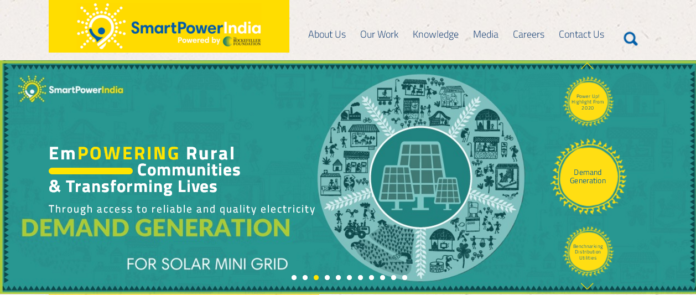Smart Power India (SPI), a subsidiary of the Rockefeller Foundation, released the learnings from its Model Distribution Zone Program (MDZ). The MDZ initiative was launched in Odisha’s Paradeep Electrical Division in 2019 to address the challenges associated with the quality of power delivery services in the region as a pilot program. Over the past decade, India achieved remarkable progress in providing universal access to electricity. However, access to reliable electricity continues to remain a major challenge for India, especially for the underserved communities in rural areas.
Smart Power India’s MDZ program covered the entire Paradeep Electrical Division of Tata Power Central Odisha Distribution Limited (TPCODL). Paradeep Electrical Division of TPCODL supplies electricity to a population of 5.5 Lakhs (that is 1.1 Lakh customers) over an area of 860 Sq. Km. During the pilot program, it was found that poor grid reliability, inadequate quality of electricity and poor customer service led to a major trust deficit among the customers leading to unviable last mile service. The MDZ program therefore aimed at addressing the trust deficit by focusing on the quality of electricity service, especially with regard to metering, billing, and collection.
Commenting on the learnings from the MDZ program, Jaideep Mukherji, CEO, Smart Power India, said, “Our experience in the mini-grids program has shown that improved electricity supply leads to positive payment behavior among customers, which then contributes to improved viability of rural electricity supply. The interventions are built upon our past learnings from both on-grid and mini-grids ecosystem to address the challenges.”
The program engaged Women Self Help Group (WSHG) as micro-franchisees to improve the last mile electricity access and quality of service. The program helped WSHGs, also known as ‘Bijulee Didi’s’ find employment with potential income of Rs 8,000 per month. The engagement with local communities resulted in the creation of localized electricity distribution service delivery mechanism. It demonstrated a comprehensive model of a Public Private People Partnership to enhance rural electricity access. This created a Win-Win-Win model for the Utility, Customer and Communities. For the utility, the program demonstrated a “sustainable rural electrification service” model which is not only viable but also improves the electricity access profile, enhances consumption of grid electricity and better quality of supply to customers. For the customer, the program provides better quality of electricity, supply, improvement in metering, billing, and collection service. For the communities, the program provided income opportunities to 160 rural women, enabling rural enterprises to save on the expensive diesel consumption thereby generating better income and health benefits by switching from diesel to electricity consumption.
The MDZ Programme leveraged the relationship between customer experience and viability of rural electricity supply to create a virtuous cycle to enhance the quality of electricity delivery. As a result, the DISCOMs improved the reliability and quality of supply by reinforcing the electricity network. This led to better customer experience which ensured that the customers paid their bill on a timely basis, making the rural electrification service viable. This is a first of its kind experiment that used insights to improve the state of electricity access in Odisha. “I believe that the MDZ program and the learnings from this can be adapted and replicated in regions where electricity access is scanty and unpredictable. The next phase of growth in India’s power sector should see innovative solutions such as the MDZ program for better access and financial wellbeing of the service providers,” added Mr. Mukherji.
About Smart Power India (SPI)
SPI, a subsidiary of the Rockefeller Foundation, was established in 2015 to develop and scale sustainable models to accelerate electricity access and spur economic development amongst the rural underserved communities. It is committed to create knowledge and accountability in the public domain through robust evidence-based research and provide field and analytical support the Government, private sector, implementers, and other donors in their pursuits for rural electricity access. SPI develops and disseminates relevant knowledge in the rural electricity access and services space with an aim to promote research and innovation and partners with policymakers, practitioners, and academic institutions to come up with actionable insights and innovative strategies. While SPI’s work covers the spectrum of supply and demand side issues of rural electricity, its focus is the last-mile customer. SPI exchanges knowledge by promoting and facilitating platforms for networking, knowledge sharing and collaborative research, networking, knowledge sharing and collaborative research.















































